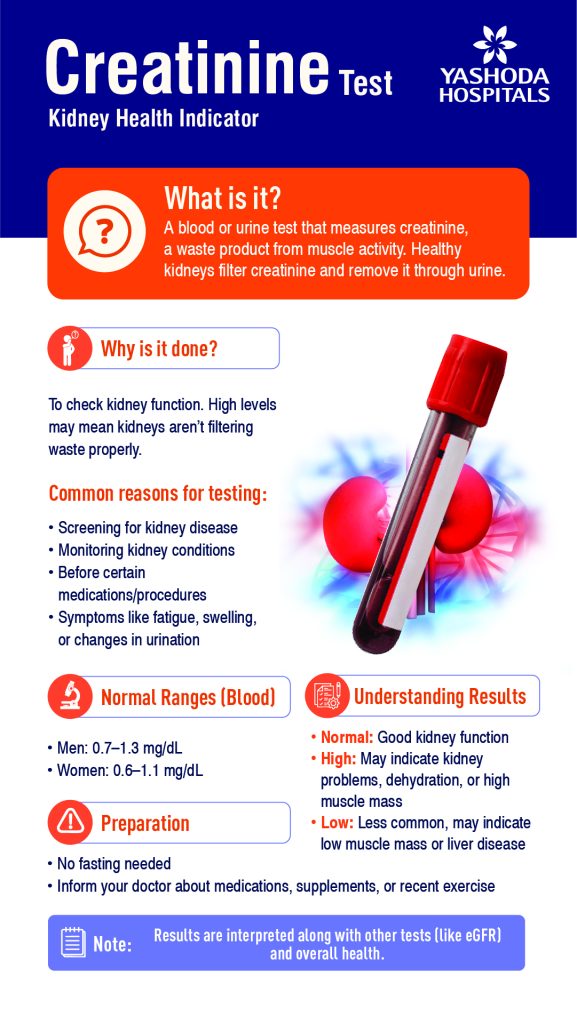What is the Creatinine Test?
The creatinine test is a test that measures creatinine levels in your blood or urine to know if your kidneys are functioning correctly. Creatinine is a chemical compound that is a naturally produced substance in our bodies. The kidneys filter this substance and throw it out through urine. This test measures the creatinine level formed during regular or everyday activity to find if your kidneys are functioning properly.
What is the Creatinine Test used for?
The creatinine test is used to measure creatinine levels, whose high levels may indicate kidney dysfunction. Your doctor may order this test if you face symptoms such as fatigue, foamy urine, etc. This test involves some associated tests called blood urea nitrogen (BUN) or comprehensive metabolic panel (CMP). A CMP is a group of tests that diagnoses different organs, including the Creatinine Test.

Understanding the test results of the Creatinine Test
Creatinine levels are measured in milligrams of creatinine per deciliter of blood (mg/dL) or micromoles of creatinine per liter of blood (micromoles/L). Normal creatinine levels vary between men and women.
Normal range of Creatinine test based on age and gender:
| Gender | Age Range | Normal Creatinine Levels (mg/dL) |
| Men | 18 – 60 years | 0.9 – 1.3 |
| Women | 18 – 60 years | 0.6 – 1.1 |




 Appointment
Appointment WhatsApp
WhatsApp Call
Call More
More